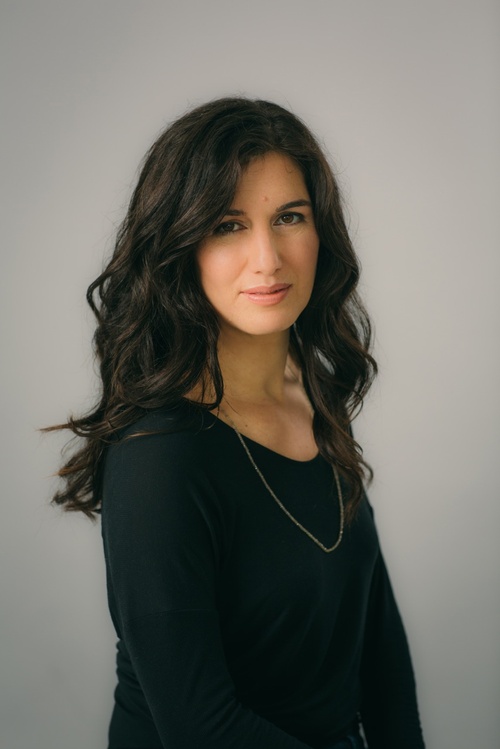
The Orange Orchard
An excerpt from The Orange Trees of Baghdad: In Search of My Lost Family.
Ten minutes was all it took to keep the Pentagon’s promise ... of “shock and awe,” as the trappings of Saddam Hussein’s regime were obliterated. The onslaught began at 9.02 pm Baghdad time and by 9.12 pm the mass of concrete hulks and lavish palaces that had symbolised Saddam’s thirty-year rule ... were turned into burning pyres..... From the east side of the river, it was like watching a gigantic video game. As soon as one building was hit, low-flying jets struck again.... They set off great jets of fire as easily as the flick of a cigarette lighter ... trails of red anti-aircraft fire from the Iraqi defences twinkled in the sky, as insubstantial as fairy lights....
—“30 Years of Saddam Razed,” the Guardian, March 22, 2003
I am alone at home in Vancouver watching Baghdad burning on television. It is March 22, 2003. Fires rage all over the city, and the black night is illuminated by those bonfires. A few nights ago, I woke from a vivid dream of walking in those streets, along the walls of Saddam’s palace enclosures near where I know my family house is, touching the sand-coloured stone. I felt such relief to be in Baghdad, despite my fear. Now it is all burning; great blazes of yellow light destroying the city. For the first time I can see a live feed of the Baghdad of my father’s childhood, which he hasn’t seen himself for more than forty years. I pick up the phone and call my father. His choked words echo in my mind: “There are people in all those buildings. Those aren’t empty buildings. Just think of that.”
I imagine all the people I know who are trapped and cowering under the threat of those bombs landing on their houses: my great-aunt Lina, my cousins Karim and Maha, their children Reeta and Samir, my other uncles and aunts on my father’s side who I have never met. I think of all their extended families and of my friend Farah Nosh, an Iraqi-Canadian photojournalist who is covering the war for the New York Times and other international publications.
Three days earlier, the front page of the Globe and Mail newspaper ran a photograph of Baghdad at sunset. The peaceful city is a beautiful golden sandy hue and pale green date palms line the Tigris River. Staring into it, I felt cheated. I was finally seeing Baghdad, but it was about to be destroyed.
The next day, The Globe and Mail front-page headline ran, “First strike on Baghdad targets Iraqi leadership.” The war had started. Cruise missiles and stealth F-117 warplanes launched “decapitation strikes” to kill Saddam Hussein at dawn.
In all the months of buildup to the war, I hadn’t believed the United States would attack Iraq again. When the invasion proved imminent and inevitable, a week before war was declared, I’d called my aunts, Amal, Siham and Ibtisam, in London and asked them if they thought Saddam Hussein had weapons of mass destruction.
“How can he have weapons?” Amal said in her lilting Iraqi accent. “The country has nothing, no medicine, no food, no money, never mind weapons! How can people believe this?”
Amal lived through the Iran–Iraq War until 1988 and was on holiday in London in August 1990, when Iraq invaded Kuwait. The Gulf War started five months later, and she and her two sisters have lived in London together ever since.
“I’ve just been on the phone with Auntie Lina in Baghdad. Of course, we are more frightened than they are,” she said.
“We have lived through war before,” Lina had told Amal. Unmarried Lina, now seventy, had been like a mother to my aunts, visiting them every day when they were children and moving in with them when Amal was a teenager in Baghdad. “We know what it is to be bombed. In a way, the bombing has never stopped.”
They were frightened, Lina said, but since they didn’t have satellite television they didn’t know just how much weaponry was targeting their country. Iraqi state television was galvanizing the weary people to believe that the war would be won by Iraq. And Amal didn’t contradict this message. She didn’t tell Lina that our newspapers were speculating that the US–UK war plan was to launch more missiles in the first day of bombarding Baghdad than they had done in the first sixty days of the Gulf War, and that the Pentagon planned to strike Baghdad with three thousand precision-guided bombs and missiles in the first two days.
My middle-class relatives in Baghdad were reduced to stockpiling their yearly rations of flour, sugar and rice, which amounted to one sack of each and a small amount of tea.
“We are already dieting,” my great-aunt joked.
There were no perishable items, of course, because the fridge and stove wouldn’t work as soon as the electrical plant was bombed. The neighbours were digging a well. During the Gulf War, the water supply was hit immediately (“Why?” my great-aunt asked). But the well water was contaminated, and she’d have to boil it before they could drink it. She was planning to cook on a portable stove until her one canister of gas ran out.
Amal asked Auntie Lina what she would do when that canister was finished.
“I will look out at the Seville orange trees in the garden,” Lina replied.
Lina was planning to stay at our family house for the duration of the war, however long it took. She was going to look after it, just as she had done during the Gulf War and since, because her own house was rented out. She didn’t want to leave our house empty for fear of looting. She saw herself as the guardian of our home and garden until our family could come back to claim it. It was if she was expecting us one day.
When my father lived in Iraq as a boy, in the months of February and March the narinj trees produced small juicy oranges as bitter as lemons. It is a different species of orange than the one we know and eat. Even in Spain, this species is merely ornamental, but in Iraq the fruit of the tree is used for cooking. My grandfather Khalil would cut down the oranges when they were ripe.
“The juice was excellent for making many delicious dishes and salads,” my great-aunt told Amal. “Do you remember? Your brother and his cousins used to collect them, your mother would squeeze them and heat the juice, which we’d keep for the winter—a hundred jars of orange juice,” she said, “and we’d make marmalade with the peel.”
During the Gulf War, the trees lost all their leaves.
“Maybe it was the lack of water or they were poisoned,” Lina speculated.
After the war, the trees produced deformed fruit that was inedible. “The orange trees are dying,” Lina told Amal. If the war lasted too long and the gas ran out, my great-aunt said that they planned to chop the trees down and burn them for fuel. “What else can we do?” she said, her voice rising. When Amal and I discussed it afterwards we agreed that we couldn’t tell how serious she was.
On the eve of the 2003 invasion of Iraq, through this short conversation, my great-aunt was resurrected for me. Through the sanction years, after the Gulf War until the 2003 invasion, no one had talked much about her. Since I had left London, she hadn’t been alive to me. And now I pictured her daily life, her real concerns and her kindness in protecting our family home while preparing for yet another siege and bombardment. Just as I’d found her, I was going to lose her again.
We couldn’t drop bombs on my seventy-year-old aunt. I felt that anyone hearing her story would realize this. In a desperate rush, I wrote an article entitled “Living Through a War in Baghdad” and sent it to the Globe and Mail, praying the newspaper would publish it. But by the time the article was published, it was March 20, and the US and UK were dropping their “targeted” bombs on Saddam Hussein and “collaterally” on the people of Iraq.
The next day, I got up and went to work as usual, numb from shock. I called my aunts, and they’d managed to speak to Auntie Lina one more time. Thankfully, the phone line still worked. They urged her to go and live with our other family members and not worry about the house. They didn’t want her to be alone. Lina said that all the neighbours were staying in, hiding in their homes. She was determined to stay in our house. They didn’t have a bomb shelter to go to anyway. The house is between an oil refinery with a human shield on it, which they thought was good, and one of Saddam’s palaces, which they thought was bad—very bad. My aunts asked why Lina didn’t leave Iraq. She said no one was taking Iraqis. Some neighbours who had tried to get out via Syria had been turned back; the border was sealed. The people have to stay in Iraq now and face whatever comes.
The last thing my great-aunt said, now sick with fear, was, “Why are they doing this to us?”
Excerpted from The Orange Trees of Baghdad: In Search of My Lost Family [Red Leaf Books], which will be available via all major online and brick-and-mortar book retailers in Canada in paperback and e-book formats as of July 2014.





